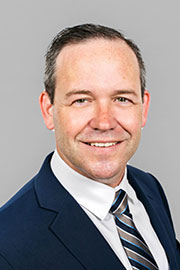- Feb/23/23 11:00:00 a.m.
Speaker, we know that the status quo isn’t working. Like the rest of the health care system, emergency departments across Ontario have been experiencing significant health human resource challenges. Our government is taking action, launching the largest health care recruitment, training and retention initiative in the province’s history. And our Emergency Department Locum Program averted over 1,900 closures of emergency departments in 2022.
Building on the 12,000 new nurses registered to work in the province last year, our government is investing in a range of initiatives to attract, train and retain more nurses and get them into our health care system, including our Learn and Stay program.
We’re working hard every day to make sure we have the health care resources and staff we need to deliver services across Ontario.
- Hear!
- Rabble!
- Feb/23/23 11:00:00 a.m.
It’s insulting to tell parents that you’re making historic investments when you’re underfunding education so badly that there are parents who have to sit outside of their kids’ school every day just to help their kids use the bathroom.
Children like Sumi Saeed in Hamilton and Colette Cousins in Toronto deserve to have the supports they need, without their parents needing to sacrifice everything to keep them at school.
So why won’t the Minister of Education commit to adequately funding education and making sure every kid who needs an EA gets one?
- Hear!
- Rabble!
- Feb/23/23 11:00:00 a.m.
We agree that children with special education needs need to have the supports in place. It’s exactly why we hired 7,000 additional education workers in the province of Ontario. It’s why we’ve hired roughly 900 additional educators since starting in office in 2018, notwithstanding the members opposite. But enrolment, when it comes to children, has actually remained flat. The enrolment of staff, the increase of staffing, is still taking place.
Mr. Speaker, with that said, the member speaks about the need for funding. It is this government that has increased funding for this current school year by an additional $683 million for publicly funded schools. That’s a 2.7% increase—more funding for school boards, more funding per child, more funding in every community.
We recognize there’s more to do. We’re working across party lines to continue to ensure children have the best education system possible and that kids are able to graduate and get a good-paying job in this province.
We recognize, as Progressive Conservatives, that the world is changing, the market is changing, and our curriculum must change with it. Technical education is fundamental to ensuring that we have the skilled labour needed to fuel our economy, and yet, this curriculum was last updated by the former Liberal government in 2008, when smart phones, automated vehicles and the rise of social media had taken hold—and yet, it was not reflected in the skills and the curriculum children were learning within our schools. So we’ve now updated the technical education curriculum for the coming school year, which will include a focus on artificial intelligence. It will include a focus on cyber security, on the advancement of automation in sectors from advanced manufacturing to agriculture to construction. This will help ensure we have a highly skilled workforce that our economy needs.
Mr. Speaker, we graduate 65,000 STEM graduates a year, and even still, there are 17,000 vacant seats today in computer and information system professionals.
This advancement will help support our kids and give them the competencies they need to succeed in the ever-changing economy around us.
Mr. Speaker, we do need more skilled labour. We need them to fuel the economy, to build the infrastructure necessary to improve our lives.
It’s why we expanded the Dual Credit Program just in December—a significant increase. We’re talking about roughly 24,000 students benefiting from this type of investment that’s going to help them to do reach-ahead courses and really take courses in high school allowing them to graduate and complete their studies in college.
We’ve expanded the Specialist High Skills Major program, which allows students to gain credits in high school related to the skilled trades.
And 15,000 students are participating in the Ontario Youth Apprenticeship Program.
All of this is designed to give them a leg-up and a competitive advantage to get those good paying jobs in the future.
- Hear!
- Rabble!
- Feb/23/23 11:00:00 a.m.
The supplementary question.
- Hear!
- Rabble!
- Feb/23/23 11:00:00 a.m.
My question is for the Minister of Education.
Canada’s economy, and indeed the world’s economy, is changing and innovating every single day. Many technical and digitized jobs in demand today may not have even existed a generation ago. The knowledge and skills previously required for work must reflect and adapt to meet our future needs.
Parents want assurances that our education system is keeping pace with the ever-changing future job landscape, so that their children have the best possible chance at obtaining good jobs with stable paycheques.
Speaker, can the minister please explain what our government is doing to ensure that Ontario’s curriculum is providing students with forward-thinking skills for the jobs of the future?
Knowing that students will learn about increasingly critical technological concepts is encouraging. The much-needed changes to course content will certainly reflect the knowledge and skills that are necessary for careers and occupations that are emerging across many sectors.
What is also true is that many jobs in the skilled trades are currently unfilled, and the vacancy rates continue to rise by the day. The reality is that Ontario’s population is growing rapidly, and workers for many occupations are desperately needed to build infrastructure and housing.
Speaker, can the minister please explain our government’s plan to connect students with in-demand skilled trades jobs?
- Hear!
- Rabble!
- Feb/23/23 11:00:00 a.m.
My question is to the Attorney General.
I think everybody here can agree that human trafficking is a terrible crime. When the victims become survivors, they need to be able to rebuild their lives, and it takes a lot of resilience to come out at the end of the tunnel and look forward with hope.
However, survivors of human trafficking often encounter one significant barrier when trying to move forward with their lives, and that is having to defend themselves against debts that their traffickers incurred in their name. In fact, these debts have the effect of re-victimizing the survivors, because these debts damage their credit and are real barriers to moving forward and being able to leave their past behind.
Bill 41 proposes to address this important issue by stopping the collection of these debts and the publication of such information on consumer reports.
This government has taken steps to address human trafficking in the past, and there is one more opportunity for you to stand in solidarity with survivors of human trafficking.
Will the government support Bill 41 tonight at second reading and help ensure that the control traffickers exert over their victims is severed for good?
- Hear!
- Rabble!
- Feb/23/23 11:00:00 a.m.
Thanks to the member for Niagara Centre for raising this issue.
I think it’s important to consider the reason for so many of the investments that we’re making into the province of Ontario and into the Niagara region, and it’s to address the health care concerns of constituents in all of our ridings and also to ensure that we’re building up a health care system that meets the needs not only of communities that are large and urban, but also smaller communities such as those also in southern Welland.
That’s why our government has introduced measures to not only increase the amount of new internationally educated nurses, but we’ve doubled the nursing program at Brock University, going from 300 nurses to 600 nurses—including five other nursing programs across the province.
We’ve launched two new medical schools to ensure that we’re graduating hundreds of new doctors who are able to provide the services that are needed.
But where was the member opposite when it came to funding these important investments to ensure that services were being maintained across Niagara and Ontario? Nowhere to be found, voting no every single time when it came to making sure that the rubber hit the road and the money was put where it’s needed.
We’re the government that’s going to get the job done for the people of Niagara, for health care across your riding and mine.
- Hear!
- Rabble!
- Feb/23/23 11:10:00 a.m.
My question is to the Premier.
Nurses across Niagara are braving literally an ice storm to rally in St. Catharines today. Their message is quite clear: It is time to stop calling nurses heroes while supporting unconstitutional legislation that is wreaking havoc on the staffing crisis.
Some 60,000 nurses across Niagara and Ontario are negotiating their first contract since working through a global pandemic.
Speaker, through you to the Premier: Will you commit today to direct the Ontario Hospital Association to compensate nurses fairly so Ontario is able to recruit and retain nurses to end this staffing crisis?
It was heartbreaking to hear of a nurse who sat and cried at her desk because she was put in charge of a floor with over 30 patients in her unit. Despite being only one year out of nursing school, she was somehow the most senior staff member at the time.
I have heard too many stories like this. This is far from normal. Nurses working in understaffed hospitals right now are counting on us.
Speaker, through you to the House leader: Can you explain to nurses across Ontario why you are willing to commit public dollars to private, for-profit clinics and commit public dollars to pay lawyers’ fees to appeal Bill 124 before you are willing to compensate nurses fairly so we can end the staff crisis and shorten hospital wait times?
- Hear!
- Rabble!
- Feb/23/23 11:10:00 a.m.
I do look forward to hearing more.
While Bill 41 is an excellent step forward in the fight against human trafficking and will ensure victims are better supported as they move forward, it is only one step. More work needs to be done. Addressing human trafficking requires a holistic approach that not only focuses on enforcement but also puts in place preventive measures to keep our young people safe and supportive measures to help survivors move forward.
We must do more to educate our young people on ways to recognize and avoid dangerous situations that could lead to them being trafficked.
We must do more to ensure survivors are supported as they heal from this traumatic experience and rebuild their lives.
My question is: What is the government going to do to hear the voices of the survivors who know the solutions to prevent human trafficking from occurring, and to better support survivors as they deal with the impacts of the crime?
- Hear!
- Rabble!
- Feb/23/23 11:10:00 a.m.
I thank my friend for raising this very important question and this very important area that we’re all focused on.
I want to give a special shout-out to Laurie Scott, the MPP. Mr. Speaker, she was on this file, she was on this problem long before this government was even elected. When we were sitting in opposition, she was driving forward change, and she’s made change after change after change and helped educate people about what’s actually happening in our communities with this heinous crime.
So I want to say that we’re following Laurie Scott’s lead and that we’re engaged in this bill. We look forward to the debate tonight—and I’ll answer more in the supplementary.
We have done small things like making sure in Smart Serve that they have embedded training programs for those on the front line who are most likely to encounter those involved in human trafficking. We’re doing big things like investing tens of millions of dollars to support victims of this crime.
Mr. Speaker, I’d like to point out that Laurie Scott, who I mentioned in the first part of my answer, is actually a co-sponsor of this bill this evening, so I look forward to her words and to the others as we move forward to continue to combat this very heinous crime.
- Hear!
- Rabble!
- Feb/23/23 11:10:00 a.m.
My question is for the Minister of Indigenous Affairs and Northern Development.
Last week, the Northern Ontario Farm Innovation Alliance, NOFIA, had their annual conference in person for the first time in several years. The conference presented an opportunity for farmers, stakeholders and industry experts from northern and remote communities to gather and discuss ideas for the agri-food sector. Farmers are a critical component of Ontario’s economic strength. Without their hard work and their dedication, our communities and our province would not thrive.
Speaker, can the minister please explain what our government is doing to support the hard-working men and women of our northern and remote agri-food sector?
It’s clear that the Northern Ontario Heritage Fund is providing much-needed leadership in supporting our agri-food sector in the north. Under the previous Liberal government, many of our farmers from northern and remote communities felt like they were not respected. Seeing the minister engaging so collaboratively with this vital industry is incredibly encouraging.
Northern agriculture is vital to the strength and the success of our province’s economy, with northern farms generating over $230 million in revenue and an increasing number of individuals joining this sector.
Can the minister please explain how changes to the NOHFC will better support the agri-food industry across the north, as well as help new farmers enter into this sector?
- Hear!
- Rabble!
- Feb/23/23 11:10:00 a.m.
Well, we’ll allow the Ontario Hospital Association to continue its negotiation with our nurses. I think that’s the right thing to do.
At the same time, no, we’re not going to stop calling our nurses and front-line workers heroes, because that’s what they are—it’s not just during the pandemic; it is all the time—and we’ve always felt that they are. So I’ll let the NDP go down that road. We will continue to thank them for their service, and we’ll continue to do it by building and investing more in health care across the province, because we think that’s the right thing to do.
Health care is not just about people and making our communities better and providing better service for people; it’s also about building a better economy. So when the Minister of Economic Development, Job Creation and Trade goes out there to sell Ontario, he can sell the investments that we are making in health care as an opportunity, another reason why to come to Ontario, where we build broadband across northern parts of Ontario. It is another opportunity.
So, no, we will not stop calling our front-line workers and our nurses heroes, because that’s what they are. And we’ll respect them by investing in those services.
- Hear!
- Rabble!
- Feb/23/23 11:10:00 a.m.
I want to thank the honourable member for his question.
Northern Ontario farmers feed cities, and increasingly our vast region is in play for Canada’s agri-food agriculture sector in a meaningful way.
I can feel the palpable enthusiasm we shared with the people of the Northern Ontario Farm Innovation Alliance around some of the work that the Northern Ontario Heritage Fund is doing to ensure that they have the tools to be a major player in agriculture and agri-food production in Canada.
We’re expanding capacity, lengthening the ability for seasons with farm technology. We’re investing in tile drainage in Thunder Bay with the agricultural research group. We’re creating terminals in places like Rainy River, in my riding, which have allowed Rainy River to become the largest canola and corn producer in northern Ontario.
These are real developments that are putting our agriculture sector in northern Ontario at the top of the list as destinations for farming.
Anyway, I want to recognize another important aspect of agriculture. It’s very near and dear to me, and it’s important, I know, to the member for Kiiwetinoong. That is food security and food sovereignty for our Indigenous communities. Whether they’re in the southern part of northern Ontario or in isolated communities—we’re working with no less than four or five Indigenous communities on really serious and important agriculture projects.
Mr. Speaker, I promised the member from Kiiwetinoong that we would work with April Mckay at Keewaywin First Nation as she grows out her community gardening capacity, teaching young people how to operate community gardens; Eabametoong in agriculture technology and storage; Thessalon First Nation’s Bio Centre. And, of course, we appreciate the work being done in Wikwemikong First Nation on some other farming.
We’re going to be there for Indigenous communities.
The entire north is going to have a strong presence in the agriculture footprint of Canada.
- Hear!
- Rabble!
- Feb/23/23 11:10:00 a.m.
Supplementary question.
- Hear!
- Rabble!
- Feb/23/23 11:20:00 a.m.
Thank you to the member for the question.
We are making record investments in health care in Ontario. That starts with the high-calibre education at our world-class education facilities here.
We are ensuring we have more nurses. Brock University now has a stand-alone nursing program. As well, multiple colleges across this province are now able to offer nursing programs closer to home to ensure that students who are practising and learning at those universities and colleges are also working in those communities.
We are making investments that you continually do not support—record investments in more registered nurses, more PSWs, stand-alone programs, our new Learn and Stay program to, again, ensure that we have students who will learn and stay in those communities.
We are seeing record numbers of students who are wanting to get into the profession, and that’s because of the investments that are being made in new hospitals and in new long-term-care centres. We have our new Brampton medical school and our Scarborough centre—record investments made by this government ensuring that more students are wanting to get into the health human resources field.
- Hear!
- Rabble!
- Feb/23/23 11:20:00 a.m.
My question is to the Premier.
Residents of the James Bay coast do not have access to adequate health services. These fly-in First Nations must travel from one community to another, or even further, such as to Timmins or Kingston, for adequate care. The travel, as we know, is very costly for the province and poses a burden on these families. Fort Albany has space for such a department in their hospital and has many patients who require daily support.
My question: What will this government do to get adequate dialysis care for these fly-in First Nations?
- Hear!
- Rabble!
- Feb/23/23 11:20:00 a.m.
That was a great question from a great member, who does amazing work for her constituents.
I’m very happy to inform this House and that member that on December 15, just before the holidays, I announced our government’s $140-million purchase of three beautiful new trains for the restored Northlander.
Speaker, make no mistake: We’re bringing the Northlander back, and we’re delivering the trains the north deserves after the Liberals cancelled this vital transportation link to the north. These trains will feature spacious seating and modern amenities, WiFi, audiovisual announcements, built-in wheelchairs, food services, and fully accessible washrooms.
This is a huge milestone in restoring the Northlander, which will unlock economic opportunities for the north and make it easier for people to access work, health care, education and other critical services.
After the NDP propped up the Liberals when they wrongfully ended the Northlander, our government is bringing the Northlander back.
Our government is working tirelessly alongside Ontario Northland to resurrect this vital link. Future implementation activities include design, engineering, environmental assessment, local consultations, station and track improvements. Just last winter, Ontario Northland performed important schedule testing for the Northlander by using existing Polar Bear Express equipment.
Speaker, to the member’s point, the revamped Northlander will deliver tremendous benefits. The planned service route between Toronto and Timmins, connecting to Cochrane, will provide passenger rail access for 176,000 residents in northern communities, deliver up to $132 million in economic benefits and, by 2041, reduce 4,400 tonnes of auto emissions annually, and generate up to 60,000 in annual ridership.
Unlike the opposition, who called the north a no man’s land—this government disagrees. The north is a valuable partner in our prosperity. We’re bringing the Northlander back.
- Hear!
- Rabble!
- Feb/23/23 11:20:00 a.m.
My question is to the Associate Minister of Transportation.
Many people in northern Ontario know the difficulties of winter weather and how it can create travel conditions that make it hard to travel to Toronto from rural, remote and northern parts of our province. In the past, many individuals and families in northern Ontario relied on the service provided by the Northlander train system to help them. Individuals would use this service to visit their families, attend medical appointments, conduct business trips, and for work. Unfortunately, the previous Liberal government that was supported by the NDP did not believe this service was important and cancelled passenger rail service between Toronto and Cochrane. Our government needs to demonstrate leadership and restore this vital transit system.
Can the Associate Minister of Transportation please provide an update on how our government’s progress to resume the Northlander is going?
This is encouraging news for many of the individuals and families from our province’s rural, remote and northern communities. People and businesses in these communities rely on a safe, convenient transportation network to get where they need to go and to keep our goods moving.
Passenger rail supports families, tourism, manufacturing, jobs, innovation and economic growth, all while keeping the people of Ontario connected—even to WiFi. That is why it is so vital that we, as a government, ensure the essential transit service is restored.
Speaker, can the associate minister explain what further measures our government is taking to ensure that the Northlander service is fully restored?
- Hear!
- Rabble!

- Feb/23/23 11:20:00 a.m.
Comment est-ce qu’on peut être déconnecté des communautés du Nord qui sont isolées? La réponse, elle l’a bien démontrée. On parle des personnes qui ont besoin de la dialyse, qui n’en ont pas dans leur communauté. Ils sont obligés de se déplacer à Kingston. Ils sont obligés de vivre à l’année dans des chambres de motel. Essayez ça, de vivre un an de temps dans une chambre de motel, puis vous viendrai m’en parler de comment c’est apprécié.
Je pense qu’on a une responsabilité d’écouter le cri du coeur de ces patients-là, de ces résidents-là, dans ces communautés qui sont isolées. On a besoin de services. Fort Albany peut accommoder et peut adresser ce problème-là. Ne donnez pas une sentence à vie à ces patients-là. On a besoin de services.
Alors, je vous repose la question, encore : What will this government do to get adequate dialysis care for these fly-in First Nations?
- Hear!
- Rabble!
- Feb/23/23 11:20:00 a.m.
Under the previous Liberal government, the concerns of the people of the north were ignored when it came to jobs, the economy and our environment and park system. The Liberal government focused on the concerns of the big cities, while northern families felt ignored in their own province.
As part of Liberal budget cuts, many of our northern provincial parks faced staff, service and program reductions. These decisions led to job losses, program cancellations and the removal of overnight camping services. These actions were disrespectful to all people of the north and diminished the value of our parks system.
Speaker, can the Minister of the Environment, Conservation and Parks please explain how our government will protect and strengthen our northern park system?
- Hear!
- Rabble!
















